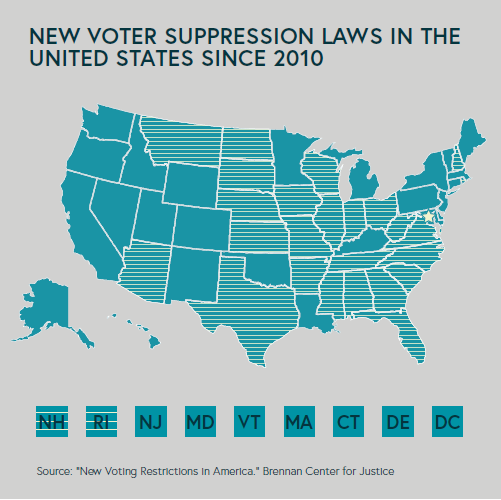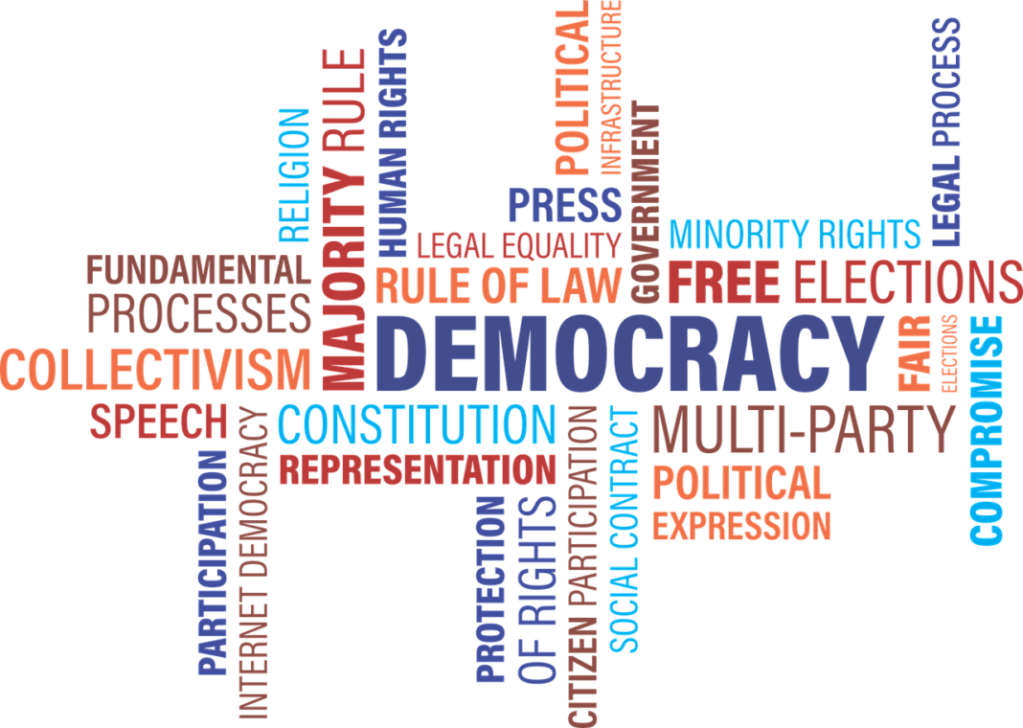Over the past few decades in the United States, citizens have spectated as those with power continue to tighten their chokehold on the U.S. political processes. While this has been an extremely negative trend of events over time, it has exposed inherent vulnerabilities in our systems that wouldn’t have otherwise been exposed.
To set the stage: A 2014 study, conducted by Princeton University and Northwestern University, concluded that elite and corporate interests override the will of the people as it pertains to the policies that are enacted in the United States. Utilizing 1,779 policy issues from 1981 to 2002, the study gauged the opinions of Americans in the 50th and 10th percentiles—as well as members of the elite and interest groups. Ultimately, it was concluded that regardless of popular support, the probability of passing a policy remained stagnant. However, when elites and interest groups are not in favor of a policy, there is nearly a 0% chance that it will become law. On the flip side, the chances of a policy that they favor becoming law floats at around 45%. Frighteningly, this is not even the start of the decay of our democratic institutions.
While this study was released in 2014, it is deeply important to consider that the data was taken from 1981 to 2002—and there have been developments to deteriorate the democratic fabric of the United States. All of these problems fall under the umbrella of anti-majoritarianism, which is contradictory to democratic values. These issues fall in the categories of a recent Supreme Court decision, centuries-old institutions, and voter suppression laws since 2010.
The principal Supreme Court decision that exacerbated this issue was the decision of Citizens United vs. the Federal Elections Commission (2010). This Supreme Court decision overturned a century-old precedent which limited corporate independent expenditures into political campaigns. As such, it is now allowed for unlimited funds to be donated to campaigns by corporations and other private entities on the basis that donations are a form of free speech. Therefore, it can only be assumed that—since there are now no limits on the elite’s influence on the political system—the issue of private interests in politics will only become worse. And the system will continue to entrench itself in biased pluralism.
Another important tenet of a true democracy aside from representation of public interests is that the people should be the sole electors of representatives—not institutional caveats. One of the most profound such institutions is the Electoral College. To preface, I do understand that this was a system put in place for ostensibly benevolent reasons, yet now it does more to disenfranchise the democratic voice of the people than actually bequeath power to them. To provide an understanding of this rationale, we must first visit the historical significance of the Electoral College. In Alexander Hamilton’s Federalist No. 68, he states that the body was the result of a compromise made in order to ensure that undue power was not placed in larger states over others. However, this is inherently anti-majoritarian in the context of post-industrial America. The reason is that now in a time where extreme wealth inequality exists, the will of the people will be more easily subdued by corporate interests. These corporations can purposefully boost campaigns and PAC messaging into states that could tip the scales for one presidential candidate over another without winning the popular vote. Furthermore, direct democratic elections in which the popular vote elects the candidate of choice make more sense in a country of 330 million people. One vote should mean one vote. In the area of elections, however, the issues of the electoral college pale in comparison to the voter suppression in many red (as well as a few blue) states.
For a long time, it was a common belief that voter suppression was a thing of the past. This is because the Voting Rights Act of 1965, signed by LBJ, outlawed common voter suppression tactics and established that the federal government would closely watch states and localities with a history of committing acts of voter suppression. However, the Supreme Court gutted the Voting Rights Act in the ruling of Shelby County V. Holder (2013) by rolling back provisions of federal oversight in such areas. With the federal inability to check states, many voter suppression laws have been passed, which make it harder to vote and subsequently impact minority groups the most. These laws include everything from cutting polling places in minority areas to making it illegal to provide food or water to people in extremely long lines. Each state has its own idiosyncratic tactics, but the glaring trend of data shows that Republicans (barring a few states) want to make it more difficult for working people and minority groups to vote, while Democrats—with the exception of R.I. and N.H.—strive to make voting easier for everyone by enacting policies like universal mail-in voting.

A common fear usually expressed, however, is the deeply unfounded argument that making voting more readily available would engender voter fraud. In fact, a 2014 study concluded that out of over a billion ballots cast from 2000-2014 (before the Voting Rights Act was gutted), there were just 31 credible instances of voter impersonation. Granted, it would be exceedingly difficult to expose every single instance, yet there is not a shred of evidence to suggest that voter fraud exists in this country on more than a negligible basis. So, let’s get down to the truth behind the voter suppression laws: Republicans know that the voting population has tipped out of their favor—and this is how they hold on to power. This reality is so lucid that even Lindsey Graham (R-S.C.) stated in an stated that there wouldn’t be another Republican presidential win if Republicans don’t do something about mail-in voting.
With all of that said, how does this tie into the notion that America is an oligarchy? Well, making voting less available for working class and minority Americans—yet not for white and wealthier Americans—tips elections in favor of politicians that protect the status quo. In this case, the status quo is that the economic elite and interest groups control the political process; this will not stop until we elect people who will actively work to dismantle the system. And in order to dismantle it, voting must become a fair, balanced, process that allows everyone an equal opportunity to have a say in who is elected into positions of power—and how they exercise that power.

8 responses to “The U.S. Is an Oligarchy: Here’s How We Fix It”
Truth!!!
LikeLike
Dems are just as complicit…
LikeLike
Debatable (both parties are awful, corrupt establishments that generally just cater to the rich) but fair enough. Regardless, we’re not Democrats.
LikeLike
Sorry for the harsh tone though.
LikeLike
👍
LikeLike
https://www.businessinsider.com/major-study-finds-that-the-us-is-an-oligarchy-2014-4
LikeLike
👍
LikeLike
tru
LikeLike